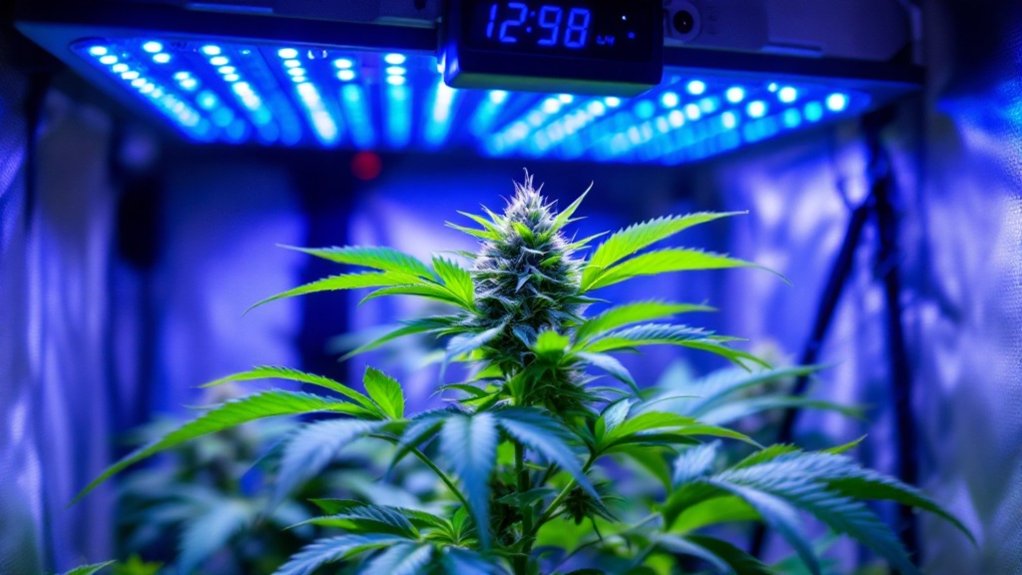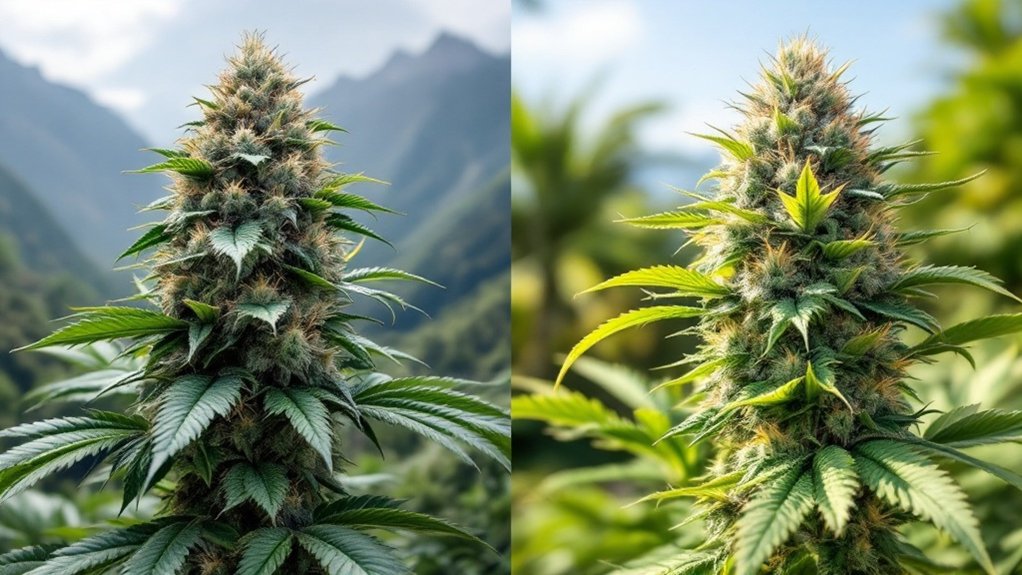Cannabis retailers are embracing several key strategies to meet evolving consumer preferences. They’re diversifying product offerings beyond traditional flower, emphasizing pre-rolls, edibles, and concentrates. Technology integration has become essential, with AI-powered marketing and omnichannel services including BOPIS options. Physical stores are transforming into experiential destinations with educational displays and sampling stations. Retailers are also prioritizing consumer education, transparency in sourcing, and sustainable practices to align with growing environmental concerns. These adaptations reflect a maturing industry responding to sophisticated market demands.

As the cannabis industry continues to mature, retailers across the country are implementing strategic changes to accommodate evolving consumer preferences and shopping behaviors. Store inventories have undergone significant transformation, with businesses increasing their stock of wellness-oriented cannabis products and alternative consumption methods like edibles, beverages, and topicals. This product diversification extends to innovative categories such as concentrates and infused pre-rolls, while simultaneously emphasizing items with sustainable packaging to address growing environmental concerns. Additionally, many retailers are adopting SEO and Content Marketing strategies to enhance their online visibility and attract more customers.
Today’s cannabis retailers are evolving beyond traditional products, embracing wellness options and sustainable packaging to meet changing consumer demands.
Technology integration has revolutionized retail operations through data-driven point-of-sale systems that analyze purchasing patterns and optimize inventory levels. AI-powered marketing tools now deliver targeted promotions and personalized communications to customers based on their preferences and history. The seamless connection between online ordering, in-store pickup, and delivery services has created all-encompassing omnichannel experiences that prioritize customer convenience in an increasingly digital marketplace. Many dispensaries now offer BOPIS options as e-commerce normalization continues throughout the industry.
Physical dispensaries have evolved beyond simple retail spaces into experiential destinations. Amsterdam-style cannabis cafes and lounges, permitted under legislation like California’s Assembly Bill 1775, blend social interaction with consumption opportunities. Retailers host live performances and special events to drive foot traffic while implementing educational displays and product sampling stations that assist consumers in making informed decisions.
These enhancements, coupled with improved store layouts and robust staff training programs, create more engaging shopping environments. The focus on pre-rolls has intensified as they represent the fastest-growing product category in 2024, with sales increasing by nearly 12% to over $4.1 billion. Consumer education has become a cornerstone of retail strategy, with businesses increasing transparency around sourcing, testing, and labeling practices. Regular educational campaigns introduce customers to new products and consumption methods, while seminars and workshops featuring industry experts provide valuable information for both newcomers and experienced consumers.
The distribution of printed materials and digital resources further supports informed purchasing decisions. Environmental and social responsibility practices now feature prominently in retail operations. Dispensaries actively reduce single-use plastics, partner with local and minority-owned businesses, and implement community donation programs. Investments in renewable energy and green retail operations demonstrate environmental commitments, while the promotion of fair labor practices across supply chains addresses social concerns.
These initiatives respond to increasing consumer demand for ethical business practices within the cannabis industry. Advanced analytics enable retailers to make data-driven decisions about inventory, marketing, and customer engagement. This technologically sophisticated approach, combined with responsive inventory management systems, allows cannabis businesses to rapidly adapt to market trends and maintain competitive advantage in an increasingly dynamic retail landscape.
Frequently Asked Questions
How Does Federal Law Impact Cannabis Retailers’ Ability to Adapt?
Federal law’s prohibition of cannabis creates substantial barriers for retailers attempting to adapt to market changes.
Banking restrictions force cash-only operations, while ineligibility for SBA loans limits access to capital for modernization.
Section 280E of the tax code prevents standard business deductions, dramatically increasing tax burdens.
Conflicting state and federal regulations necessitate costly compliance measures, and the prohibition of interstate commerce restricts supply chain optimization and economies of scale that would otherwise enable competitive pricing strategies.
What Payment Processing Solutions Work Best for Cannabis Businesses?
Cannabis businesses typically find ACH payment processing most effective due to its compliance, security, and lower fees.
PIN debit solutions offer a compliant alternative with familiar consumer experiences, though at slightly higher costs.
Cashless ATM methods face increasing regulatory scrutiny and operational risks.
Cryptocurrency and digital wallet options provide decentralized alternatives but suffer from low adoption rates and implementation challenges.
The ideal solution balances regulatory compliance with customer convenience while minimizing processing fees and banking relationship risks.
How Are Retailers Integrating Sustainable Practices Into Their Operations?
Cannabis retailers are implementing multiple sustainable strategies in their operations. They are adopting recyclable and reusable packaging options in response to growing consumer preference, with nearly 70% of cannabis consumers purchasing products with sustainable packaging.
Some dispensaries operate collection programs where customers return packaging for recycling or reuse, often incentivized through loyalty points.
Additionally, forward-thinking retailers are implementing sustainable growing practices such as soil regeneration, composting plant waste, and using cover crops to improve soil health.
What Security Measures Do Modern Cannabis Retailers Prioritize?
Modern cannabis retailers prioritize multi-layered security systems that combine physical and digital protections. High-definition surveillance cameras, access control systems using biometric authentication, and robust perimeter security form the foundation of their physical defenses.
Extensive inventory tracking through seed-to-sale systems helps prevent diversion, while employee background checks and regular security training mitigate internal threats.
Retailers also implement advanced cybersecurity measures to protect sensitive customer data and transaction records from emerging digital threats.
How Do International Cannabis Markets Influence U.S. Retail Trends?
International cannabis markets greatly influence U.S. retail trends through product innovation, regulatory frameworks, and consumer preferences.
European and Canadian markets drive standardization in edibles and beverages, while promoting wellness-focused formulations with organic ingredients.
Strict international regulations on packaging, labeling, and testing protocols encourage U.S. retailers to adopt higher compliance standards.
Global demographic insights shape market segmentation strategies in the U.S., particularly for senior wellness products and discrete consumption options.
Cross-border partnerships facilitate technology transfer in cultivation, extraction, and retail management systems.









